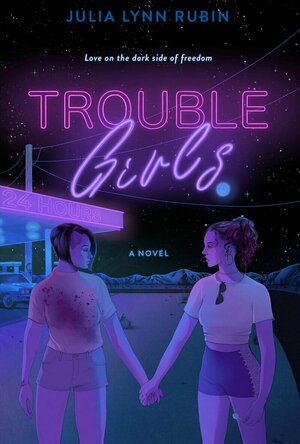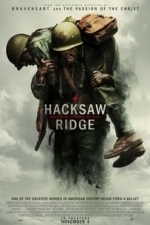Search

Amazon Prime Now
Shopping and Food & Drink
App
You have better things to do than go to the store. Skip the trip and shop for tens of thousands of...
Kristy H (1252 KP) rated Trouble Girls in Books
Jun 3, 2021
A queer Thelma & Louise that doesn't live up to its potential
High school best friends Trixie and Lux are headed for a much-needed weekend getaway. Trixie needs to forget about her depressing waitress job, where all the men are "hogs" and her sick mom, and Lux needs to escape her overbearing dad. But a horrific night of violence changes everything and Trixie and Lux find themselves fugitives, running away from their tiny West Virginia town and everything they've ever known. Before they know it, they are wanted by the police, their faces splashed across social media. The girls are scared and horrified--on an unplanned road trip where the only thing they can count on is each other.
The premise of this book sounded amazing -- a queer "Thelma & Louise." Unfortunately, it all fell apart for me. Rather than being a #MeToo rallying cry, this was a depressing and stressful read, featuring two teens who make a bunch of stupid and ill-fated decisions.
I definitely understand the overall idea for TROUBLE GIRLS and even why Trixie and Lux run, afraid that no one will believe their story. But the choices they make along the way--spending their money on junk, not trusting each other, stealing and lying... and everything else. It's maddening. They do not act like two smart girls on the run, but two idiots who do not believe in one another. Trixie's infatuation with Lux clouds everything, and Lux comes across as this adored princess with no real personality of her own.
We're (eventually) told a bit of Trixie's backstory, including why we have to read the word "hog" in what feels like every other darn sentence, but the character development here is severely lacking. Trixie has a sick mom and a dark secret. Lux... likes makeup and her camera? I think this story would have would worked so much more if we knew how and why these two teens ticked. Why, exactly, was Trixie so in love with Lux? How exactly did Lux feel back? There's a weird switch that turns at some point in the book, and it made no sense to me. If you're going to give me a queer story, give me queer characters who truly feel for one another and whose love is based in reality.
Trixie and Lux's story is supposed to have a #MeToo angle to it, and it does, in some ways, but this was not a #MeToo anthem to me. It's two girls running away, trying to figure out maps on the back roads, and making poor decisions as they flee what they've done. While, again, I understand why they run, the story I wanted to read was Trixie and Lux returning to Blue Bottle and fighting along side the Intersectional Feminist Union and the other women they supposedly "rally" with a few misplaced social media posts. It was these women and Judy, Trixie's co-worker back home, whose life I wanted to know about--I would have enjoyed that book much more!
Overall, this book can tug at your heart strings, but also frustrate you to no end. There was much to its overall premise, but most of it did not work for me. 2.5 stars (Trigger warning: sexual assault, rape)
The premise of this book sounded amazing -- a queer "Thelma & Louise." Unfortunately, it all fell apart for me. Rather than being a #MeToo rallying cry, this was a depressing and stressful read, featuring two teens who make a bunch of stupid and ill-fated decisions.
I definitely understand the overall idea for TROUBLE GIRLS and even why Trixie and Lux run, afraid that no one will believe their story. But the choices they make along the way--spending their money on junk, not trusting each other, stealing and lying... and everything else. It's maddening. They do not act like two smart girls on the run, but two idiots who do not believe in one another. Trixie's infatuation with Lux clouds everything, and Lux comes across as this adored princess with no real personality of her own.
We're (eventually) told a bit of Trixie's backstory, including why we have to read the word "hog" in what feels like every other darn sentence, but the character development here is severely lacking. Trixie has a sick mom and a dark secret. Lux... likes makeup and her camera? I think this story would have would worked so much more if we knew how and why these two teens ticked. Why, exactly, was Trixie so in love with Lux? How exactly did Lux feel back? There's a weird switch that turns at some point in the book, and it made no sense to me. If you're going to give me a queer story, give me queer characters who truly feel for one another and whose love is based in reality.
Trixie and Lux's story is supposed to have a #MeToo angle to it, and it does, in some ways, but this was not a #MeToo anthem to me. It's two girls running away, trying to figure out maps on the back roads, and making poor decisions as they flee what they've done. While, again, I understand why they run, the story I wanted to read was Trixie and Lux returning to Blue Bottle and fighting along side the Intersectional Feminist Union and the other women they supposedly "rally" with a few misplaced social media posts. It was these women and Judy, Trixie's co-worker back home, whose life I wanted to know about--I would have enjoyed that book much more!
Overall, this book can tug at your heart strings, but also frustrate you to no end. There was much to its overall premise, but most of it did not work for me. 2.5 stars (Trigger warning: sexual assault, rape)
Bob Mann (459 KP) rated Hacksaw Ridge (2016) in Movies
Sep 29, 2021
In God, and Doss, we Trust.
Those dreaded words – “Based On A True Story” – emerge again from the blackness of the opening page. Actually, no. In a move that could be considered arrogant if it wasn’t so well researched, here we even lose the first two words.
When a war film is described as being “visceral” then you know you need to steel yourself mentally for what you might see. But given that this film is based around the horrendously brutal combat between the Americans and the Japanese on the Pacific island of Okinawa in 1945 this is a warning well-founded. For the battle scenes in this film are reminiscent of the opening scenes of “Saving Private Ryan” in their brutality: long gone are the war films of John Wayne where there would be a shot, a grasp of the stomach and a casual descent to earth.
But before we get to the battle itself, the film has a leisurely hour of character building which is time well spent (although it could have perhaps been trimmed a tad tighter). Desmond Doss (Andrew Garfield, “The Amazing Spiderman”, “Never Let Me Go”) grows up a God-fearing youngster in the beautiful surroundings of the Blue Ridge Mountains of Virginia. His alcoholic father (Hugo Weaving, “The Lord of the Rings”, “The Matrix”) has been mentally traumatised by the First World War, further strengthening Desmond’s fervent belief in following the Ten Commandments; most notably “Thou Shalt Not Kill”. But his patriotic sense of duty is also strong, and Doss signs up after Pearl Harbor and is posted to a rifle brigade that – given his refusal to even touch a rifle – puts him on a collision course with the US Army. It also (obviously) disrupts his romance with nurse sweetheart Dorothy (Teresa Palmer).
This is really two films in one, with the first half setting up extremely well the characters that make the second half so effective. For you care – really care – for what happens to most of the characters involved, especially the zealous and determined Doss who has nothing to face the Japanese hoards with but a medical bag. The feelings that comes to top of mind are awe that these real people actually had to go through this horror and hope that in today’s increasingly unstable political world we will never need to again face such inhumanity of man against man again.
Andrew Garfield really carries this film, and his Best Actor Oscar nomination is well-deserved. He is perfectly cast as the (onward) Christian soldier. Also outstanding is Hugo Weaving in an emotional and persuasive role playing opposite Rachel Griffiths (“Saving Mr Banks”) his wife. But the real acting surprise here for me was Vince Vaughn (“The Wedding Crashers”) who plays the no-nonsense platoon Sergeant Howell: never one of my favourite actors, here he brings in a warm and nuanced performance that ends with a memorable action scene.
Also worthy of specific note is Dan Oliver (“Mad Max: Fury Road”) and his team of special effects technicians, the stunt teams (led by Kyle Gardiner and Mic Rodgers), production designer Barry Robinson and the hair and makeup team, all of who collaborate to make the final half of the film so gripping.
The film marks a comeback from the film society ‘naughty step’ of Mel Gibson after his much publicised fall from grace in the mid-noughties. A Best Director Oscar nomination would appear to cement that resurrection. For this is a phenomenal achievement in direction and one that should be applauded.
The film bears closest comparison with the interesting two-film combo from Clint Eastwood – “Flags of our Fathers” (from the American viewpoint) and “Letters from Iwo Jima” (from the Japanese viewpoint). While all three films share the same blood and guts quotient, with “Hacksaw Ridge” edging this award, the Eastwood films tend to have more emotional depth and a more thought-provoking treatment of the Japanese angle. In “Hacksaw Ridge”, while the war crimes of the Japanese are clear, the war crimes of the Americans are quietly cloaked behind a cryptic line (“They didn’t make it”).
That being said, there is no crime in a rollicking good story well told, and “Hacksaw Ridge” is certainly that. This was a film I did not have high hopes for. But I was surprised to be proved wrong. Recommended.
When a war film is described as being “visceral” then you know you need to steel yourself mentally for what you might see. But given that this film is based around the horrendously brutal combat between the Americans and the Japanese on the Pacific island of Okinawa in 1945 this is a warning well-founded. For the battle scenes in this film are reminiscent of the opening scenes of “Saving Private Ryan” in their brutality: long gone are the war films of John Wayne where there would be a shot, a grasp of the stomach and a casual descent to earth.
But before we get to the battle itself, the film has a leisurely hour of character building which is time well spent (although it could have perhaps been trimmed a tad tighter). Desmond Doss (Andrew Garfield, “The Amazing Spiderman”, “Never Let Me Go”) grows up a God-fearing youngster in the beautiful surroundings of the Blue Ridge Mountains of Virginia. His alcoholic father (Hugo Weaving, “The Lord of the Rings”, “The Matrix”) has been mentally traumatised by the First World War, further strengthening Desmond’s fervent belief in following the Ten Commandments; most notably “Thou Shalt Not Kill”. But his patriotic sense of duty is also strong, and Doss signs up after Pearl Harbor and is posted to a rifle brigade that – given his refusal to even touch a rifle – puts him on a collision course with the US Army. It also (obviously) disrupts his romance with nurse sweetheart Dorothy (Teresa Palmer).
This is really two films in one, with the first half setting up extremely well the characters that make the second half so effective. For you care – really care – for what happens to most of the characters involved, especially the zealous and determined Doss who has nothing to face the Japanese hoards with but a medical bag. The feelings that comes to top of mind are awe that these real people actually had to go through this horror and hope that in today’s increasingly unstable political world we will never need to again face such inhumanity of man against man again.
Andrew Garfield really carries this film, and his Best Actor Oscar nomination is well-deserved. He is perfectly cast as the (onward) Christian soldier. Also outstanding is Hugo Weaving in an emotional and persuasive role playing opposite Rachel Griffiths (“Saving Mr Banks”) his wife. But the real acting surprise here for me was Vince Vaughn (“The Wedding Crashers”) who plays the no-nonsense platoon Sergeant Howell: never one of my favourite actors, here he brings in a warm and nuanced performance that ends with a memorable action scene.
Also worthy of specific note is Dan Oliver (“Mad Max: Fury Road”) and his team of special effects technicians, the stunt teams (led by Kyle Gardiner and Mic Rodgers), production designer Barry Robinson and the hair and makeup team, all of who collaborate to make the final half of the film so gripping.
The film marks a comeback from the film society ‘naughty step’ of Mel Gibson after his much publicised fall from grace in the mid-noughties. A Best Director Oscar nomination would appear to cement that resurrection. For this is a phenomenal achievement in direction and one that should be applauded.
The film bears closest comparison with the interesting two-film combo from Clint Eastwood – “Flags of our Fathers” (from the American viewpoint) and “Letters from Iwo Jima” (from the Japanese viewpoint). While all three films share the same blood and guts quotient, with “Hacksaw Ridge” edging this award, the Eastwood films tend to have more emotional depth and a more thought-provoking treatment of the Japanese angle. In “Hacksaw Ridge”, while the war crimes of the Japanese are clear, the war crimes of the Americans are quietly cloaked behind a cryptic line (“They didn’t make it”).
That being said, there is no crime in a rollicking good story well told, and “Hacksaw Ridge” is certainly that. This was a film I did not have high hopes for. But I was surprised to be proved wrong. Recommended.

